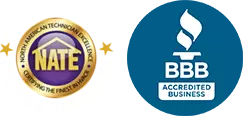Plumbing problems are a common issue in many homes. These issues can range from minor annoyances to major disruptions. Understanding the most common plumbing problems can help you take action before they become serious. Addressing these issues early often prevents costly repairs and potential water damage.
Understanding Common Plumbing Issues
Plumbing problems can be varied and often occur unexpectedly. Some of the most common issues include dripping faucets, running toilets, low water pressure, and blocked drains. Understanding these problems helps in taking preventive measures and knowing when to call for professional help.
Dripping faucets are a frequent nuisance in many homes. Even a minor drip can waste a lot of water over time. This typically occurs due to worn-out washers or seals inside the faucet. Fixing a dripping faucet usually involves replacing these small components, a straightforward task that can prevent future issues.
Running toilets are another common problem. This happens when the internal parts of the toilet, like the flapper valve, become defective or worn out. A running toilet can significantly increase water bills if left unaddressed. Thankfully, replacing faulty parts is generally simple and restores proper function quickly.
Low water pressure can result from various issues, such as clogged pipes, faulty pressure regulators, or sediment buildup. Identifying the root cause can be challenging, and sometimes it requires professional intervention to restore adequate water pressure throughout the home.
Identifying Leaks and Water Damage
Leaks can start small but often lead to bigger problems if not addressed promptly. Identifying leaks early is crucial to prevent water damage and maintain the integrity of your home. Common signs of leaks include unexplained water stains on walls or ceilings, dampness, and musty odors.
Faucet leaks are usually easy to spot. A dripping faucet can waste a lot of water and increase utility bills. Inspecting and replacing worn-out washers or seals can usually fix this issue. It’s a simple solution that saves water and prevents further damage.
Pipe leaks are more insidious and harder to detect. They often occur behind walls or under floors, making them less obvious. Signs of pipe leaks include bubbling paint, bulging walls, and water pooling in unusual areas. If you notice any of these signs, contact our professionals to inspect and repair the problem immediately.
Toilet leaks are another common issue. Sometimes, a toilet can leak from its base, which might indicate a faulty wax ring. Other times, water running constantly into the bowl may signal an internal leak. Both issues require a quick fix to prevent water waste and potential floor damage.
Water damage is a serious consequence of unresolved leaks. When water seeps into structural components like walls, floors, or ceilings, it can lead to mold growth and weaken the structure. Regular inspections and prompt repairs of leaks are essential to maintaining a safe and healthy home environment.
Solutions for Clogged Drains
Clogged drains are one of the most common plumbing problems in homes. They can occur in sinks, showers, tubs, and toilets. Addressing clogs early prevents them from becoming bigger issues. Here are some effective solutions to keep your drains clear:
- Use a Plunger: A plunger is a simple tool that can solve many clog problems. Place the plunger over the drain and pump it up and down to create suction. This action can dislodge blockages and restore normal water flow.
- Employ a Drain Snake: A drain snake, or plumber’s auger, is a flexible tool that reaches deeper into pipes to remove clogs. Insert the snake into the drain and twist it to break up or pull out debris causing the blockage.
- Natural Cleaners: Baking soda and vinegar can also help with minor clogs. Pour half a cup of baking soda down the drain, followed by half a cup of vinegar. Let the mixture sit for a while before flushing it with hot water. This method can dissolve minor build-ups without harsh chemicals.
- Chemical Cleaners: Over-the-counter chemical drain cleaners can dissolve tougher clogs. These products are easy to use but should be handled with care as they can be harsh on plumbing. Always follow the instructions on the label.
- Prevention: Prevent future clogs by regularly cleaning drains and being mindful of what goes down them. Use drain guards to catch hair and other debris, and avoid pouring grease down the sink.
If these methods don’t work, consider contacting our professionals so we can perform drain cleaning services. Our technicians have the expertise and tools to handle stubborn clogs effectively.
Preventative Maintenance Tips for Your Plumbing System
Preventative maintenance is key to avoiding major plumbing problems. Regular checks and simple tasks can keep the plumbing system in good shape. Here are some tips for maintaining your plumbing system:
- Regular Inspections: Inspect your plumbing fixtures periodically. Look for signs of leaks, corrosion, or water damage. Early detection of problems can save you from costly repairs later.
- Clean Drains Routinely: Keep your drains clean to prevent build-ups. Use natural cleaners like baking soda and vinegar or mild chemical cleaners occasionally. Avoid letting large food particles or grease enter the drains.
- Check Water Pressure: Ensure your water pressure is within safe limits. Too high pressure can strain pipes and fixtures, leading to leaks or bursts. Use a pressure gauge to check and adjust as needed.
- Water Heater Maintenance: Regularly check your water heater for signs of wear or sediment build-up. Flushing the tank annually helps maintain efficiency and extends its lifespan.
- Seal Leaks Promptly: Address leaks as soon as you notice them. Even small leaks can cause significant damage over time. Tighten fittings and replace worn-out washers or seals as needed.
- Insulate Pipes: In colder months, insulate exposed pipes to prevent freezing. Frozen pipes can crack or burst, leading to severe water damage. Pipe insulation is an affordable and effective solution to this problem.
- Professional Inspections: Schedule annual inspections with our professionals. They can identify potential issues and perform necessary maintenance tasks. Professional insights help keep your plumbing system running smoothly.
Preventative maintenance not only keeps your plumbing in good shape but also helps avoid unexpected issues. Regular care and professional checks ensure a reliable and efficient plumbing system.
Conclusion
Understanding and addressing common plumbing issues keep your home safe and functional. Identifying leaks early and dealing with clogged drains promptly are essential steps in maintaining your plumbing system. Implementing preventative maintenance tips ensures that your plumbing system remains in optimal condition, reducing the likelihood of costly repairs.
A proactive approach to plumbing care saves time and money. Regular inspections, cleaning routines, and professional help make a significant difference in the health of your plumbing system. Taking these steps improves the longevity and efficiency of your home’s plumbing.
For expert assistance and reliable plumbing services in Caledonia, WI, trust us at Burkhardt Heating & Cooling. Our professionals are equipped to handle all your plumbing needs with care and expertise. Contact us today to schedule an inspection or routine maintenance to keep your plumbing in excellent condition.












